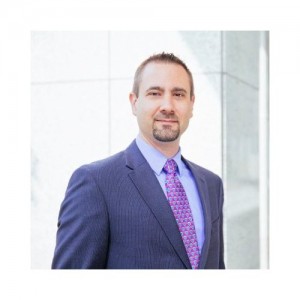
By Matthew Ardrey
Special to the Financial Independence Hub
In my previous two blogs in this series, I took a look at the pure mathematical decision as to when you should take your CPP (hyperlink to CPP blog) and OAS (hyperlink to OAS blog) to maximize their payout.
In my final entry on government pensions, let’s examine a couple of cases to get a sense of how personal circumstances can affect the decision.
If I stop working is it still better to defer?
Jim is planning to retire next year at age 55 and not work thereafter. He is single and his assets and future income are such that his decision to take the CPP at 60 or 65 will not affect his OAS clawback. Jim has a Statement of CPP Contributions that shows for the first five years he made 50% of the maximum contributions and then 75% of the maximum for the following three years. After this point he has contributed the maximum every year. Should Jim defer his pension to age 65 or take it at age 60?
Jim takes his pension at 65: After the general drop-out provision, Jim will receive a pension equal to 87% of the maximum available.
Jim takes his pension at 60: After the general drop-out provision, but before the actuarial age adjustment, Jim will receive a pension equal to 95% of the maximum available. After the reduction of 36% for taking the pension early, he will receive 61% of the maximum available.
Does the OAS clawback make a difference in my decision to defer?
Carol is 60, planning to retire and not work afterwards. She is married and is expected to receive maximum CPP and OAS. She has an RRSP worth $500,000 and no other assets. She will not need to draw upon her RRSP until mandated at age 72. There is no tax benefit to splitting CPP or RRIF income with her spouse.
If we assume a rate of return of 5% and inflation at 2%, how much, if any, will deferring the CPP until age 65 impact Carol’s OAS payment at age 72?
| CPP at age 60 | CPP at age 65 | ||
| RRIF Income | $48,488 | RRIF Income | $48,488 |
| CPP Income | $10,373 | CPP Income | $16,208 |
| OAS Income | $ 8,674 | OAS Income | $ 8,674 |
| Total Income | $67,535 | Total Income | $73,370 |
| OAS Threshold | $90,796 | OAS Threshold | $90,796 |
| OAS Clawback | $ 0 | OAS Clawback | $ 0 |
With the new RRIF withdrawal percentages, it is now less likely that deferring CPP until age 65 will cause a clawback in OAS payments. In cases where the CPP does account for some OAS withdrawal, it is often only temporary, as the CPP, OAS and the OAS threshold will all increase by the same percentage rate. Since the absolute number of the threshold is larger than the other two, it will increase by a larger amount in dollar terms.
What are some other personal circumstances that may impact this decision?
It may be beneficial to defer CPP and OAS if the bulk of your assets are in a RRSP and you have no other income. During the years before you take the pension, you can draw down your RRSP at lower marginal tax rates.
Your family history of longevity should be considered in the decision to defer. All other things being equal, the longer you expect to live the more you should lean towards deferring. If you are expected to have a less than normal life expectancy, then the opposite would be true.
Will you still be employed and contributing? Though you would get the Post-Retirement Benefit (PRB) and increase your retirement pension that way, the PRB portion of your pension is not eligible for pension sharing or splitting and does not affect payments to disability or survivor pensions.
If you expect to have higher lifestyle expenses now than in the future, it may be beneficial to take your pensions earlier rather than later.
If your spouse is much older than you, then you may benefit from taking the pension early to enjoy more retirement activities together. Your expenses will likely drop when the older spouse can no longer enjoy some or all of these activities or passes on.
Though the numbers lean towards deferring the pensions to later dates, you should always consider how this is going to affect your own personal situation. There is no single answer that is right for everyone.
Matthew Ardrey is a Certified Financial Planner with T. E. Wealth. He can be reached at its Toronto offices here. He is also on Twitter as @MattArdreyCFP.

